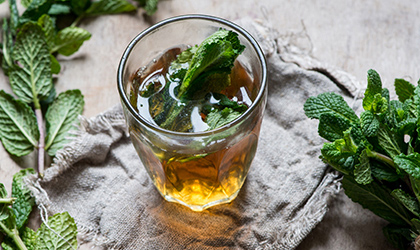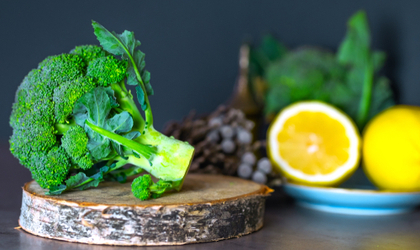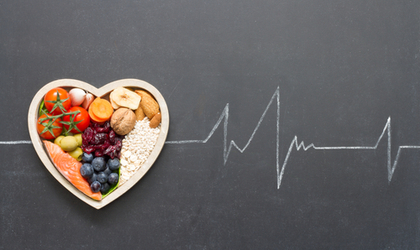
Indigestion and heartburn are common digestive complaints, and many people experience them from time to time.
There is a difference between the two: indigestion – also called dyspepsia – describes discomfort in the stomach, such as pain, a burning sensation, feeling sick and feeling uncomfortably full or bloated; whereas heartburn is a burning sensation that rises from the stomach or lower chest up towards the throat (many sufferers say the pain of heartburn feels like a burning sensation behind the breastbone that can radiate to their jaw and arms). Heartburn is also often a symptom of indigestion.
Both indigestion and heartburn happen after eating. Indeed, the way you eat can trigger a bout of indigestion or heartburn, especially if you overeat or eat too quickly. Some people may even experience some of the other symptoms of indigestion and heartburn at the same time.
However there is often no reason why people get indigestion, though certain medicines can trigger it, including nitrates and non-steroidal anti-inflammatory drugs (NSAIDs) such as aspirin and ibuprofen. Being overweight or obese can cause indigestion too, as can having a hiatus hernia, a peptic ulcer, stomach cancer, gastro-oesophageal reflux disease (GORD – see below) or an H pylori infection.
Some of the other things that may cause indigestion include the following:
-
Eating a particularly large, spicy or fatty meal
-
Eating certain foods such as chocolate or oranges coffee and tomatoes
-
Smoking
-
Leaving a lot of time between eating meals
Painful symptoms
While heartburn isn’t linked to any problems with the heart, according to one survey four out of 10 heartburn sufferers claim their symptoms have been so painful, they’ve been worried they were having a heart attack (i).
The same survey also reveals these severe symptoms are often experienced in women more commonly than men. Meanwhile, 41 percent of women think stress and anxiety are likely to contribute to a heartburn attack, with men believing an unhealthy diet is to blame. Nearly one in five suggests having a busy lifestyle and not having enough time to relax and eat properly are also potential causes.
What is GORD?
GORD stands for gastro-oesophageal reflux disease, a common condition that produces symptoms including heartburn and pain and difficulty when swallowing. The condition is caused when acid from the stomach frequently leaks back up into the oesophagus (gullet), which is known as acid reflux (acid reflux also causes heartburn).
According to Patient, a certain amount of acid reflux is normal, and the oesophagus has a natural mechanism to protect itself against it. But if someone has prolonged or excessive acid reflux, this natural protection can break down, causing inflammation of the oesophagus (oesophagitis) (ii).
Help yourself to reduce indigestion and heartburn
Experts believe that changing your lifestyle can help to reduce the symptoms of both indigestion and heartburn to such an extent that you may not need any further treatments or medicines.
-
Maintain a healthy weight
Being overweight or obese can lead to indigestion and heartburn because it adds pressure on your stomach, which can cause acid reflux.
Keeping your weight healthy – or losing excess weight if you need to – may help to reduce your symptoms. Eating a healthy balanced diet and being physically active on a regular basis are the best ways of keeping your weight healthy. Exercise may also help reduce stress, which is linked with digestive problems. Aim for at least 150 minutes of moderate-intensity exercise on a weekly basis. -
Cut down on alcohol
Drinking too much alcohol is one of the most common causes of heartburn. That’s because alcohol relaxes the ring of muscle that separates your stomach from your oesophagus (this muscle is known as the lower oesophageal sphincter), making it easier for the contents of your stomach to leak and cause acid reflux. Binge drinking alcohol is also thought to increase the production of stomach acid and lead to inflammation of the stomach.
Stick to the government’s s recommended alcohol intake limit, which is no more than 14 weekly units of alcohol for both men and women spread out over at least three days of the week. -
Stop smoking
Like alcohol, cigarette smoke contains chemicals that may contribute to indigestion and heartburn as they relax the oesophageal sphincter, causing acid reflux.
There are many stop-smoking aids available designed to reduce the symptoms of nicotine withdrawal, called nicotine replacement therapy (NRT) products. Clinical trials suggest using NRT products may increase the success of quitting smoking by 50-70 percent (iii). -
Watch your diet
Eating big portions can cause indigestion and/or heartburn because of the way all that food puts pressure on your stomach. So having smaller, and if necessary more frequent, meals may help. Also take care with how you eat, and avoid eating on the run or grabbing a takeaway and eating it in front of the television. Try and have as many meals at the table as possible, and eat slowly instead of gulping your food down.
Some people who get indigestion and/or heartburn regularly may also realise there are certain foods or types of foods that tend to make their symptoms worse. If that’s the case, avoiding these foods wherever possible is the obvious solution.
But if you haven’t yet worked out which types of food trigger your indigestion/heartburn, it’s a good idea to keep a food diary to try and pinpoint the culprits. Here are some of the likely foods to steer clear of:-
Citrus fruits (oranges, grapefruit and their juices)
-
Garlic, onion, peppers, tomatoes and chillies
-
Foods containing caffeine, including coffee, chocolate, tea and caffeinated soft drinks
-
Meanwhile, if you tend to get heartburn when you’re in bed, try to eat at least three hours before bedtime and don’t drink anything for two hours before you turn in.
-
Reduce your stress levels
It’s well accepted that stress is associated with digestive upsets, so consider trying to manage your stress better by learning effective ways to cope with it. You could try breathing techniques, for instance, or meditation, or anything that helps you to relax more. If you suffer from persistent high stress levels and stress-reducing techniques aren’t working, consult your GP.
Indigestion and heartburn in pregnancy
According to Patient, around half of all pregnancies are affected by indigestion including heartburn (iv). The symptoms are the same as non-pregnancy indigestion and heartburn, the main one being pain or a feeling of discomfort in the stomach or in the chest that most commonly starts soon after eating or drinking.
The symptoms of indigestion and heartburn can affect women at any time during pregnancy, though they may become more common after 27 weeks (v).
What causes pregnancy indigestion and heartburn?
There are several things that may cause indigestion and heartburn during pregnancy, including the following:
-
Pressure on the stomach caused by the womb
-
Changes in hormone levels
-
The muscle between the stomach and oesophagus (the lower oesophageal sphincter) becoming more relaxed
-
Worry and feelings of anxiety
What can you do?
Fortunately there are lots of ways to combat pregnancy indigestion and heartburn, including eating little and often instead of having three big meals a day, not eating late in the evening, avoiding foods that may trigger your symptoms such as fatty or spicy foods, chocolate, orange or grapefruit juice, and avoiding foods or drinks containing caffeine.
Drinking alcohol may also trigger the symptoms of indigestion and/or heartburn. According to the NHS, women who are pregnant (as well as those who are planning to become pregnant) should avoid drinking alcohol, especially during the first three months of pregnancy to reduce the risk of miscarriage, premature birth and to help prevent their baby being born with a low birth weight (vi).
Indeed, the Chief Medical Officers for the UK recommend that for women who are pregnant or planning to become pregnant, the safest approach is to avoid alcohol altogether to keep risks to their baby to a minimum (vi).
Smoking during pregnancy is also thought to cause indigestion, not to mention the harm it may do to an unborn baby. For instance, if you smoke while you’re pregnant, you have an increased risk of having a premature birth as well as your baby being born with a low birth weight.
For help with giving up smoking or drinking alcohol during pregnancy, speak to your GP or midwife.
Can indigestion be serious?
Indigestion and heartburn are relatively common and most people don’t need to see a medical professional for their symptoms. However, there are some signs that may indicate a more serious underlying cause, such as a stomach ulcer or stomach cancer. If you have persistent indigestion or heartburn, see your GP if you also have any of the following:
-
You’re losing weight for no reason
-
You’re having difficulties swallowing (or swallowing is painful)
-
You’re vomiting
-
You have blood in your stools
-
You have a lump in your stomach
-
You have anaemia caused by iron deficiency
-
You are 55 or older
-
You have indigestion with severe pain
-
You keep getting indigestion
Meanwhile, see a medical professional immediately if you experience:
-
Fresh red blood in your vomit
-
Vomit that looks like coffee grounds
-
Sudden onset chest pain, heartburn or indigestion that doesn’t respond to simple antacids (in this event, call for an ambulance as it can be difficult to tell the difference between indigestion pain in the chest and pain originating from the heart)
OTC and natural remedies for indigestion and heartburn
If lifestyle changes don’t bring relief from indigestion and/or heartburn, there are some over-the-counter (OTC) medicines you can try as well as some natural remedies.
-
Antacids
These are available in chewable tablet form or in a liquid, and contain ingredients such as aluminum hydroxide, calcium carbonate or magnesium hydroxide. They work by neutralising the excess acid formed in your stomach.
Some antacids also contain ingredients called alginates, which protect the lining of your stomach and oesophagus from the effects of stomach acid. If taken after eating, the alginates in antacids may help to keep the medicine in your stomach for longer.
Note: Antacids can prevent other medicines from being absorbed properly and they may damage the special coatings on some tablets. If you’re taking other medication, ask your GP for advice before taking antacids. -
H2 receptor antagonists
Also called H2 blockers, these work by lowering the acid level in the stomach too. They include ingredients such as ranitidine, cimetidine, famotidine and nizatidine. H2 blockers are often used to treat more persistent cases of indigestion or heartburn including gastro-oesophageal reflux disease (GORD), as well as ulcers in the stomach and the duodenum (part of the oesophagus). -
Proton pump inhibitors (PPIs)
Also used for recurring indigestion or heartburn that doesn’t respond to simple antacids, these medicines restrict acid formation. Most PPIs are only available on prescription, but two – namely omeprazole and pantoprazole – are included in some OTC medicines at a lower strength. If you need to take PPIs for longer than four weeks, speak to your GP.
Natural remedies:
Ginger
If you have indigestion with nausea, a ginger preparation may be helpful. Numerous studies suggest ginger may be effective for nausea associated with other conditions such as motion sickness and morning sickness (vii). Indeed, the link between ginger and nausea is a long-standing one, with Chinese medical texts from the 4th century BC suggesting it’s effective as a treatment for nausea and stomach aches.
Peppermint
Capsules of peppermint oil may be best known as a natural remedy for irritable bowel syndrome (IBS) symptoms (viii), but they may also help treat minor indigestion. It’s thought that peppermint oil may help reduce spasms and relax the digestive tract as well as stimulate the flow of digestive juices. Peppermint is also classed as a carminative herb, which means it‘s believed to help relieve trapped wind.
Digestive enzymes
If you feel your digestion is sluggish – or, for instance, if you’ve had a particularly big meal – a supplement containing plant-sourced enzymes may be useful. Plant enzymes such as bromelain, lipase, protease and glucoamylase may help to support your digestive system gently by breaking down proteins, fats and carbohydrates.
Indigestion and heartburn can have an impact on your day-to-day life, but this guide may help you to manage it. To find more information about common health conditions, read the articles in our health library.
References:
-
Zantac 75 Relief online survey with Opinion Health. 501 Heartburn and Indigestion adult sufferers. March 2010.
-
Available online: https://patient.info/doctor/gastro-oesophageal-reflux-disease
-
Nicotine replacement therapy for smoking cessation. The Cochrane Library, Updated Sep. 2012.
-
Available online: https://patient.info/pregnancy/common-problems-in-pregnancy-leaflet#nav-1
-
Available online: https://www.nhs.uk/conditions/pregnancy-and-baby/indigestion-heartburn-pregnant/
-
Available online: https://www.nhs.uk/conditions/pregnancy-and-baby/alcohol-medicines-drugs-pregnant/
-
Ernst. E, Pittler. MH. Efficacy of ginger for nausea and vomiting: a systematic review of randomized clinical trials. Br J Anaesth 2000 Mars;84(3):367-71.
-
Capello G et al., Peppermint oil (Mintoil) in the treatment of irritable bowel syndrome: a prospective double blind placebo-controlled randomized trial. Dig Liver Dis. 2007 Jun;39(6):530-6.Available online: https://www.ncbi.nlm.nih.gov/pubmed/17420159
Related Posts
Disclaimer: The information presented by Nature's Best is for informational purposes only. It is based on scientific studies (human, animal, or in vitro), clinical experience, or traditional usage as cited in each article. The results reported may not necessarily occur in all individuals. Self-treatment is not recommended for life-threatening conditions that require medical treatment under a doctor's care. For many of the conditions discussed, treatment with prescription or over the counter medication is also available. Consult your doctor, practitioner, and/or pharmacist for any health problem and before using any supplements or before making any changes in prescribed medications.

Christine
Christine Morgan has been a freelance health and wellbeing journalist for almost 20 years, having written for numerous publications including the Daily Mirror, S Magazine, Top Sante, Healthy, Woman & Home, Zest, Allergy, Healthy Times and Pregnancy & Birth; she has also edited several titles such as Women’ Health, Shine’s Real Health & Beauty and All About Health.
View More



